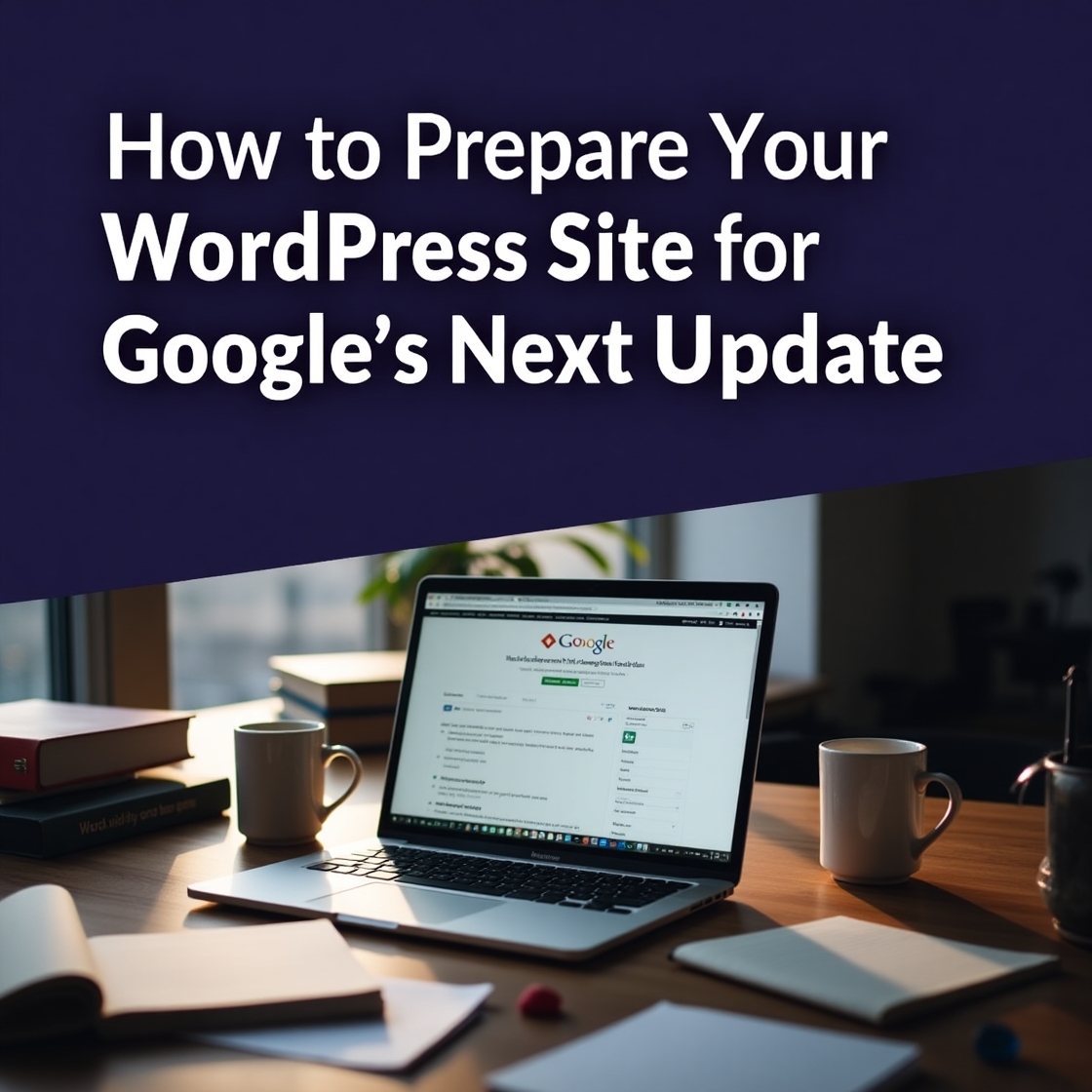How to Prepare Your WordPress Site for Google’s Next Algorithm Update
Google’s search algorithms evolve constantly, and the next major update could significantly impact your WordPress site’s rankings, traffic, and visibility. Staying ahead of these changes ensures your site remains competitive, compliant, and optimized for search.
In this guide, we’ll cover proven strategies to future-proof your WordPress site before the next Google update rolls out.
1. Audit & Improve Core Web Vitals
Google prioritizes user experience (UX), and Core Web Vitals remain a key ranking factor.
Key Metrics to Optimize:
✔ Largest Contentful Paint (LCP) – Aim for <2.5s load times
✔ Cumulative Layout Shift (CLS) – Keep <0.1 (avoid unexpected layout jumps)
✔ First Input Delay (FID) – Target <100ms (fast interactivity)
How to Fix:
- Use caching plugins (WP Rocket, LiteSpeed)
- Optimize images (WebP format, lazy loading)
- Minimize render-blocking JavaScript/CSS
- Upgrade to PHP 8.0+ for faster execution
2. Strengthen E-E-A-T (Expertise, Experience, Authority, Trustworthiness)
Google’s E-E-A-T guidelines impact rankings, especially for YMYL (Your Money or Your Life) sites.
How to Comply:
✅ Show author credentials (bios, qualifications)
✅ Cite reputable sources (back up claims with links to authority sites)
✅ Fix outdated content (update old posts with fresh data)
✅ Add trust signals (SSL, privacy policy, secure checkout for eCommerce). Our YouTube channel; https://www.youtube.com/@easythemestore
3. Optimize for AI & SGE (Search Generative Experience)
Google’s AI-powered search may prioritize:
- Structured data (FAQ, How-To, Review schema)
- Conversational content (natural Q&A format)
- Multimedia answers (videos, infographics)
Action Steps:
- Use Rank Math / Yoast SEO for schema markup
- Optimize for long-tail, question-based keywords
- Include voice search-friendly phrases
4. Fix Thin & Low-Quality Content
Google’s Helpful Content Update penalizes shallow, AI-spun, or irrelevant content.
How to Improve:
- Merge or delete thin posts (<1,000 words with low value)
- Enhance top-performing content (add case studies, expert quotes)
- Avoid keyword stuffing (write naturally for humans)
5. Secure Your Site Against Spam & Hackers
Google demotes hacked or spammy sites.
Must-Do Security Checks:
- Scan for malware (Sucuri, Wordfence)
- Block spam registrations (Stop Spammers plugin)
- Disable XML-RPC if unused
- Enable two-factor authentication (2FA)
6. Improve Mobile Usability
Mobile-first indexing is now standard.
Critical Fixes:
- Test with Google’s Mobile-Friendly Test
- Use a responsive WordPress theme (Astra, GeneratePress)
- Avoid intrusive interstitials (popups blocking content)
7. Monitor & Adapt to Ranking Shifts
- Track rankings & traffic drops (Google Search Console)
- Check manual actions (penalties in GSC)
- Stay updated via SEO news sources (Search Engine Journal, Moz)
Final Checklist Before the Next Update
🔹 Run a Core Web Vitals audit (PageSpeed Insights)
🔹 Update old content (refresh stats, sources)
🔹 Add schema markup (help AI understand your pages)
🔹 Fix broken links (Ahrefs, Screaming Frog)
🔹 Back up your site (in case recovery is needed)
Need Help?
If Google’s update already hit your traffic, we offer emergency SEO audits & recovery plans.
Is your WordPress site ready? Start optimizing today! 🚀


